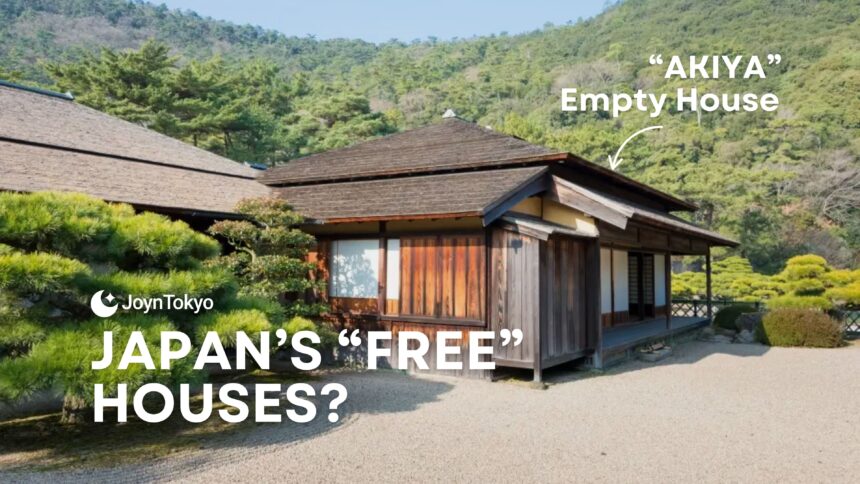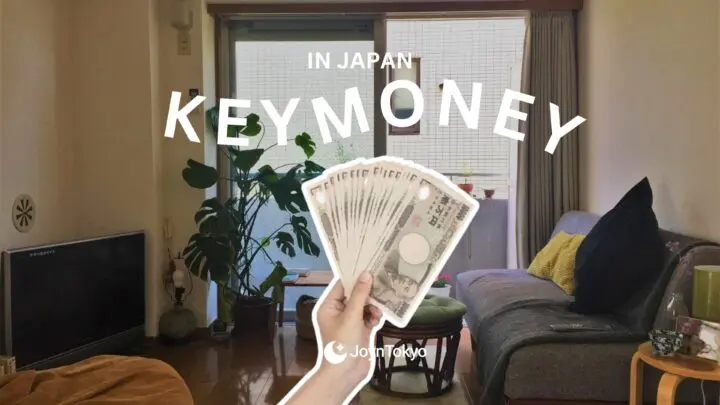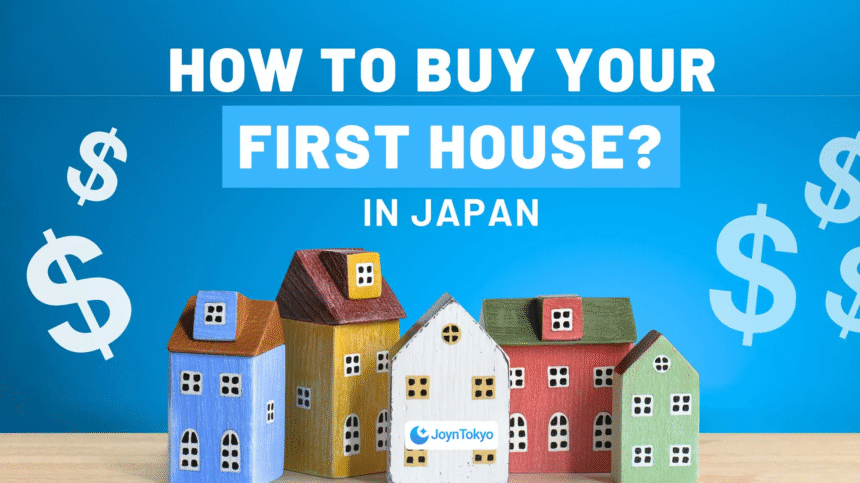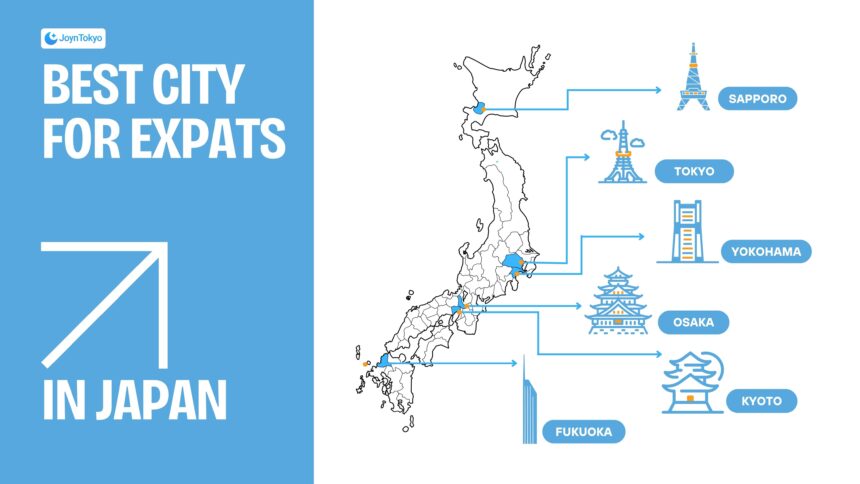Akiya are abandoned or vacant homes across Japan, often in rural towns and villages. Japan has millions of these properties due to population decline and urban migration. Interest in akiya is growing, especially among foreigners curious about affordable property opportunities. Below, we’ll answer the most common questions about akiya, ownership, and the process of buying one.
What is an Akiya in Japan
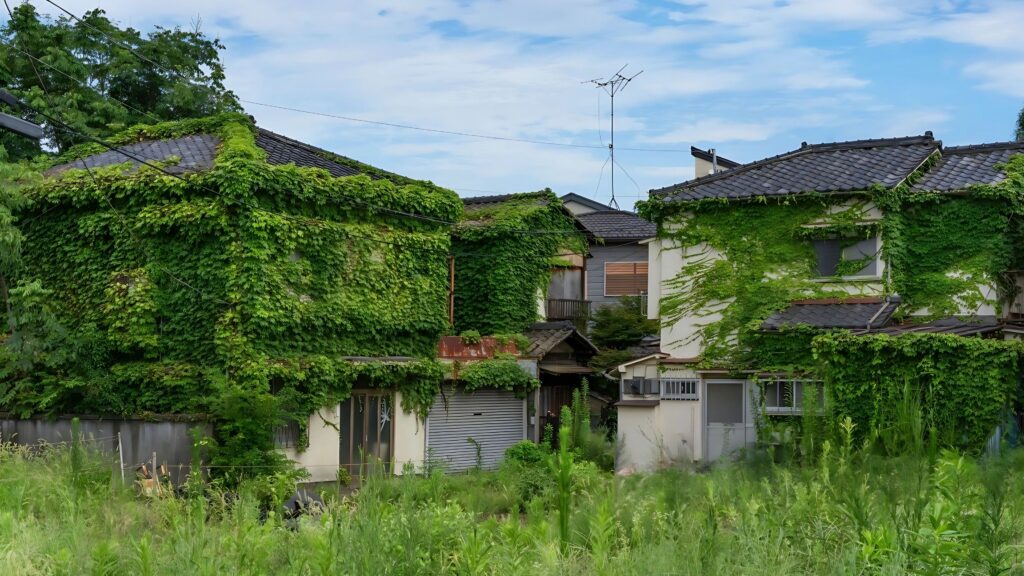
Before exploring how to buy, it is important to understand what akiya are. These are properties left vacant for years, sometimes inherited but unused. Many municipalities now list them in “akiya banks” to attract buyers who can bring life back to quiet communities.
Can Foreigners Buy Akiya in Japan
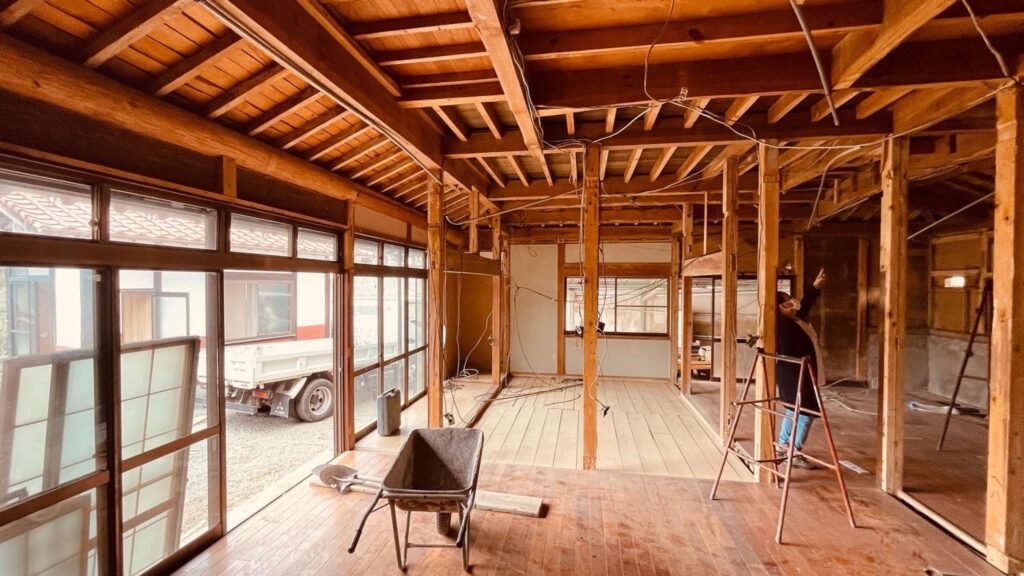
Foreigners can legally buy akiya in Japan without needing Japanese citizenship or permanent residency. Property ownership rights apply equally to locals and international buyers, and the process of registering ownership is administered by the Legal Affairs Bureau where the property is located. That said, owning a home does not automatically grant the right to live in Japan permanently; Japan does not have a residency‑by‑investment or “golden visa” program. To stay long term, foreign buyers will need the correct visa status, such as a work visa, student visa, or long‑term resident visa. Some buyers choose to use their akiya as vacation homes or investment properties, while others pursue residency options to make Japan their full‑time home. Understanding both the legal ownership rights and the residency requirements is important before starting the purchase process.
How Many Akiya Are in Japan

As of the 2023 Housing and Land Survey, Japan had about 9.0 million vacant homes, with projections suggesting the number could rise further. These homes are concentrated in rural areas where populations are shrinking. The government and local towns see akiya revitalization as a way to encourage new residents.
How to Buy an Akiya in Japan
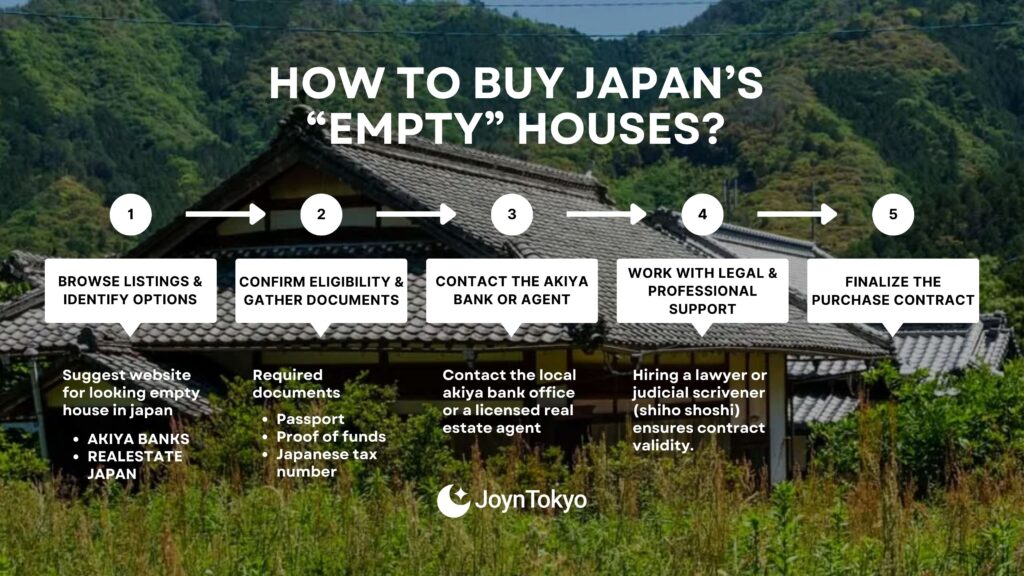
Buying an akiya in Japan usually involves several steps, and understanding each stage will make the process smoother for first‑time buyers. While the overall framework is similar to purchasing other types of property in Japan, akiya purchases often require additional communication with local governments, verification of property conditions, and a realistic plan for renovation and upkeep. For this reason, it is wise for first‑time buyers to take extra time learning about the process, consulting with professionals, and preparing for both the legal and practical aspects of restoring an older vacant home.
Step 1: Browse Listings and Identify Options
Most buyers start by looking through local akiya bank websites such as AkiyaBanks, or real estate platforms. Japan’s MLIT also supports national‑level akiya bank initiatives operated with major portals. These listings provide details about the property’s condition, location, and asking price. At this stage, buyers should note whether the property is move‑in ready or in need of renovation.
Step 2: Confirm Eligibility and Gather Documents
While foreigners can legally purchase property, you will still need documents such as a passport, proof of funds, and possibly a Japanese tax number. Preparing these in advance helps avoid delays during negotiations.
Step 3: Contact the Akiya Bank or Agent
Once a property is chosen, buyers contact the local akiya bank office or a licensed real estate agent. Agents can guide you through the paperwork, explain local regulations, and act as translators when necessary.
Step 4: Work With Legal and Professional Support
Engaging a lawyer or judicial scrivener (shiho shoshi) ensures that contracts are valid and that ownership is properly transferred. For properties requiring renovation, it can also be useful to consult a construction professional to estimate repair costs before purchase.
Step 5: Finalize the Purchase Contract
After due diligence, both parties sign the purchase agreement. Payment is arranged, and ownership is registered with the local Legal Affairs Bureau. This step officially transfers the property to the buyer.
How Much Does an Akiya Cost
Prices vary widely depending on the location and condition of the property. In some municipalities, special programs list homes at very low prices, even as low as 100 yen, though renovations often cost far more than the purchase price. Others may be priced similarly to regular rural homes but still cheaper than urban properties.
Renovating and Living in an Akiya
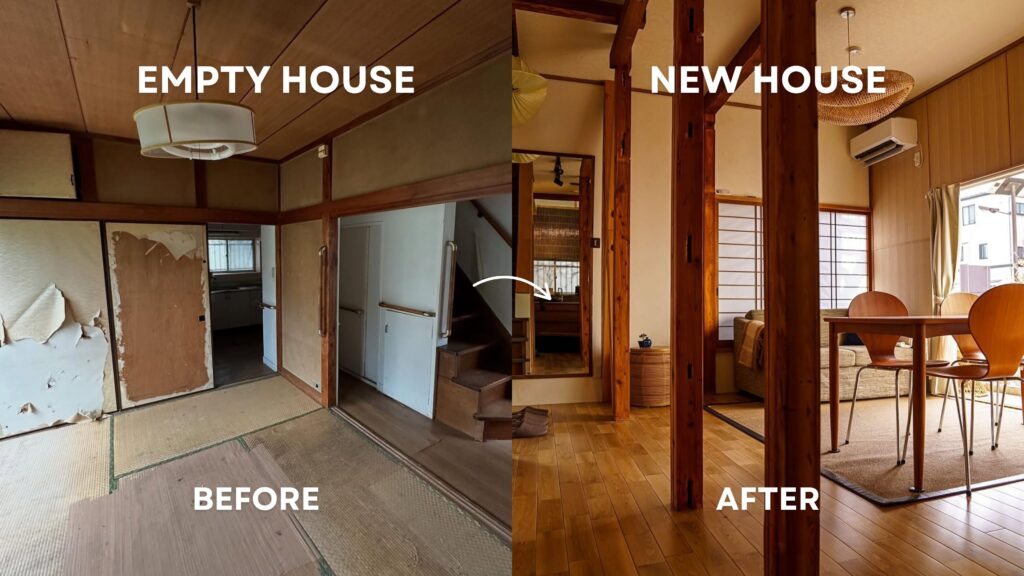
Most akiya need repairs ranging from minor fixes to complete renovations. Buyers should budget for inspections, construction costs, and modern upgrades like plumbing and insulation. Earthquake insurance is typically added as a rider to fire insurance and is widely recommended for homeowners in Japan. Renovating an akiya can be challenging, but it allows owners to customize the home while preserving local culture. If you’re looking for resources to help you renovate, Akiya2.0 also offers renovations and commercialization services.
Taxes and Ongoing Costs for Akiya Owners
Owning akiya in Japan comes with recurring expenses that extend beyond the initial purchase price. Property taxes are levied annually and vary depending on the size and location of the home; the main local taxes are Fixed Asset Tax (typically 1.4% of assessed value) and, in some areas, City Planning Tax (around 0.3%). Insurance is recommended to cover risks such as fire, earthquakes, or other natural disasters common in Japan.
Maintenance costs can be unpredictable, ranging from routine upkeep of the roof and plumbing to unexpected repairs caused by years of neglect. In addition, many rural communities collect neighborhood or community association fees, which support local services and upkeep of shared facilities.
Foreign buyers should plan for these ongoing obligations in their budgets and consider hiring a property manager if they do not live in Japan full‑time. By factoring in these long‑term responsibilities, buyers can make a more informed decision about whether an akiya is a sustainable investment.
Resources to Find Akiya in Japan
For foreigners, the process can be easier through specialized services. If you are looking for helpful platforms to find akiya listings, guidance or support, check out these resources:
This is one of the most widely recognized government-backed portals that aggregates vacant home listings across Japan. It connects directly with local municipalities, giving users access to official databases that might otherwise be difficult to find. It remains one of the most comprehensive resources for those seeking akiya, making it especially valuable for buyers who want a broad overview of the market.
Akiya Air is tailored specifically to help foreign buyers navigate the complexities of purchasing property in Japan. The platform provides curated listings, English-language support, and step-by-step guidance through the purchase process. By simplifying the legal and cultural barriers, it makes acquiring a rural home much more approachable for international buyers who may not be fluent in Japanese.
Designed with accessibility in mind, Akiya Mart functions like an online marketplace where buyers can easily browse through available properties. Listings are presented in a user-friendly way, often with detailed descriptions, photos, and pricing. The platform also emphasizes connecting buyers directly with sellers, helping to shorten the communication chain and streamline the buying process.
More than just a listings site, Akiya2.0 positions itself as a holistic solution for people interested in revitalizing rural communities. It offers property information alongside consulting services, renovation support, and even community integration advice. For buyers looking not just to purchase but also to restore and become part of a local area, Akiya2.0 provides ongoing resources and guidance that go beyond the initial sale.
Search platform for exploring Japan’s abandoned house listings, providing English-language tools to help international buyers research and discover akiya properties.
These platforms bridge the gap between local municipalities and international buyers.
Akiya Opportunities
Akiya represent both a challenge and an opportunity for Japan. For foreigners, they offer a chance to own property at a relatively low price while contributing to community revitalization. With the right research and support, buying an akiya can be a rewarding step into Japanese life.

